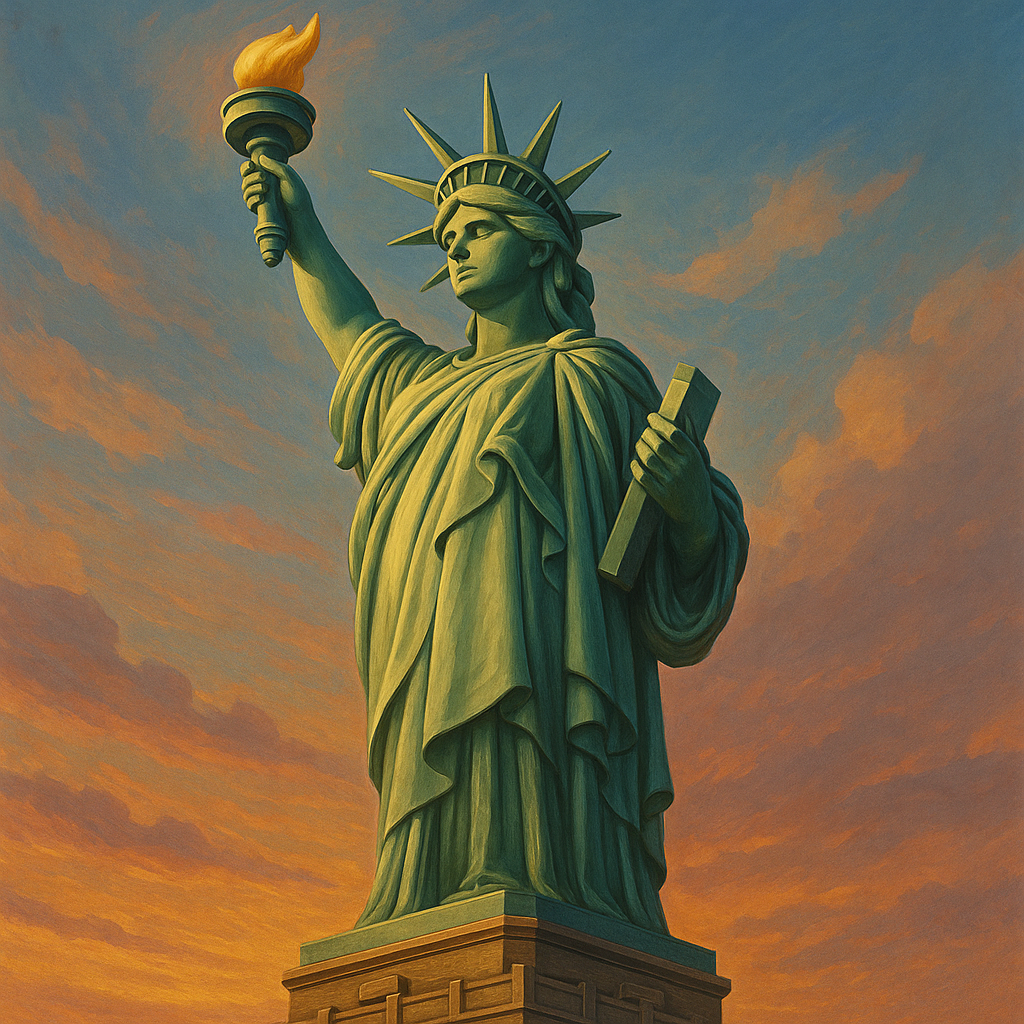Statue
Definition
A statue is a three-dimensional representation of a person, animal, or object, typically created by carving, casting, or sculpting materials such as stone, metal, or clay.
Parts of Speech
- Noun
Pronunciation
American English
- IPA Pronunciation: /ˈstætʃu/
- Respelling: STACH-oo
British English
- IPA Pronunciation: /ˈstætʃuː/
- Respelling: STACH-oo
Etymology
The word "statue" originates from the Latin "statua," derived from "statuere," meaning "to set up" or "to establish." It entered the English language through Old French in the late Middle Ages.
Derivatives
- Statuesque (adjective)
- Statuary (noun)
- Statue-making (noun)
- Statueless (adjective)
- Statuer (noun)
Synonyms
- Sculpture
- Effigy
- Figure
Antonyms
- None
Usage
The word "statue" is commonly used to refer to artistic representations, often commemorative or decorative. For example, "The Statue of Liberty is an iconic landmark," or "A bronze statue of the athlete was unveiled in the city square."
Related Terms
- Sculpture: The broader art form encompassing statues and other three-dimensional artworks.
- Monument: A structure erected to commemorate a person or event.
- Bas-relief: A low-relief sculptural form related to statues.
Detailed Definitions
Noun
- A carved or cast figure representing a person, animal, or object: Typically made from durable materials like stone or metal for artistic, commemorative, or decorative purposes.
- Example: "The park features a statue of the city's founder."
- An emblematic or symbolic figure: Often used in cultural or religious contexts to represent deities, heroes, or historical figures.
- Example: "The temple was adorned with ancient statues of deities."
statue



🇨🇳 Mandarin (Chinese)
- Statue: 雕像
- IPA Pronunciation: /tjɑʊ̯˥˩ ɕjɑŋ˥˥/
- English Respelling: diāoxiàng
🇮🇳 Hindi
- Statue: प्रतिमा
- IPA Pronunciation: /pɾətɪmaː/
- English Respelling: pratimaa
🇪🇸 Spanish
- Statue: Estatua
- IPA Pronunciation: /esˈtatwa/
- English Respelling: estatua
🇫🇷 French
- Statue: Statue
- IPA Pronunciation: /staty/
- English Respelling: statue
🇸🇦 Modern Standard Arabic
- Statue: تمثال
- IPA Pronunciation: /tɪmˈθɑːl/
- English Respelling: timthal
🇧🇩 Bengali
- Statue: মূর্তি
- IPA Pronunciation: /murti/
- English Respelling: murti
🇷🇺 Russian
- Statue: Статуя
- IPA Pronunciation: /stɐˈtʉjə/
- English Respelling: statuya
🇵🇹 Portuguese
- Statue: Estátua
- IPA Pronunciation: /iʃˈtatuɐ/
- English Respelling: estátua
🇮🇩 Indonesian
- Statue: Patung
- IPA Pronunciation: /patuŋ/
- English Respelling: patung
🇩🇪 German
- Statue: Statue
- IPA Pronunciation: /ʃtaˈtuː/
- English Respelling: statue
🇯🇵 Japanese
- Statue: 彫像
- IPA Pronunciation: /tʃoːzoː/
- English Respelling: chōzō
🇻🇳 Vietnamese
- Statue: Tượng
- IPA Pronunciation: /tʊəŋ˧ˀ˦/
- English Respelling: tượng
🇰🇷 Korean
- Statue: 조각상
- IPA Pronunciation: /t͡ɕo.ɡak̚.sʰaŋ/
- English Respelling: jogaksang
🇹🇷 Turkish
- Statue: Heykel
- IPA Pronunciation: /hejˈkel/
- English Respelling: heykel
🇵🇰 Urdu
- Statue: مورتی
- IPA Pronunciation: /muːrtiː/
- English Respelling: moorti





